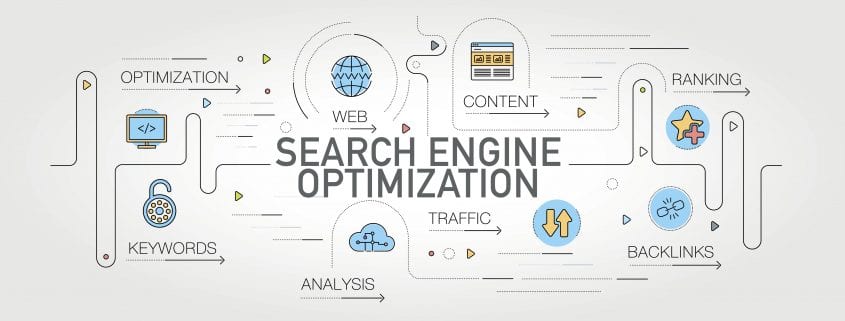
Are Keywords Still Required To Increase SEO Rankings?
Although the use of keywords no longer has the power to increase SEO rankings the way they once did, they continue to play an important part in online marketing strategies.
SEO has evolved greatly over the years, to the point where it’s almost unrecognizable to what it was just a decade ago. Google has continuously updated its algorithm to make its search results more accurate and relevant, and they’ve cracked down on the abuse of keywords to artificially boost web rankings. These days, Google uses over 200 factors to determine search rankings; however, keywords still play a vital part. The following are three ways that keywords are still important to your SEO rankings:
Identify Relevancy
The use of high-quality keywords can help Google to identify what your content is about so that they can their SERP (search engine results page) more accurate. It’s important to use good keywords, such as long-tail keywords that are backed up by semantic keywords. This helps prevent Google from mistaking your use of keywords for similar keywords in subjects that are not the same.
For example, if you write a blog post about the best apples (as in the fruit) and your keyword is “how to choose the best apple,” Google might mistake this for the company Apple. Visitors who come to your site looking for information on new Apple computers are going to be annoyed and will leave immediately, thereby increasing your bounce rate, which will affect your rankings. The stronger your keywords are in regards to relevancy, the more accurately Google will rank your content.
Match User Intent
Knowing what your target audience is searching for will be very beneficial, not only in building your own keyword list to match their search queries, but to use those keywords in content created to match the user intent. Basically, the use of keywords and content created to match the user intent of the keywords your audience is using will put you in a greater position to fulfill their needs at whatever stage of the buying journey they are at. If they click on your page and it’s exactly what they’re looking for, they’re more likely to stay on your site for a longer period of time and to engage with your content, resulting in higher rankings.
Learn how to drive website conversions during each stage of the buyer’s journey!
Attract Higher Quality Leads
Overly broad keywords will bring in traffic, but it won’t necessarily be your target audience. Bringing in empty traffic doesn’t do anything for your site if your visitors don’t have interest in your brand. By using stronger keywords that are more specific, you’re more likely to attract visitors that match your buyer persona.
While you might think that doing this could limit your web traffic, this may not be true. More specific keywords are likely going to have less competition than broader keywords, which means you’ll have a much better chance at ranking higher. For example, you’re not going to rank very high for “apple” for obvious reasons, but you’re more likely to increase SEO rankings with a more specific keyword, such as “best tasting apples in Sacramento.”
Keywords aren’t the only thing that you should be focusing on as you attempt to increase SEO rankings, but they still play a very important part in your SEO strategy. In fact, although they may not be as defining a factor in your rankings as they once were, you could argue that they play an even more important part in your inbound marketing campaign as a whole. For more professional advice on how to create an effective SEO campaign, contact us at Stevens & Tate today.

The landscape of the Internet is ever changing and Nicole has the energy and aptitude to keep Stevens & Tate Marketing out in front of the pack. She leads an enthusiastic team in strategic planning, development, search engine marketing, online promotions and advertising for the web.





